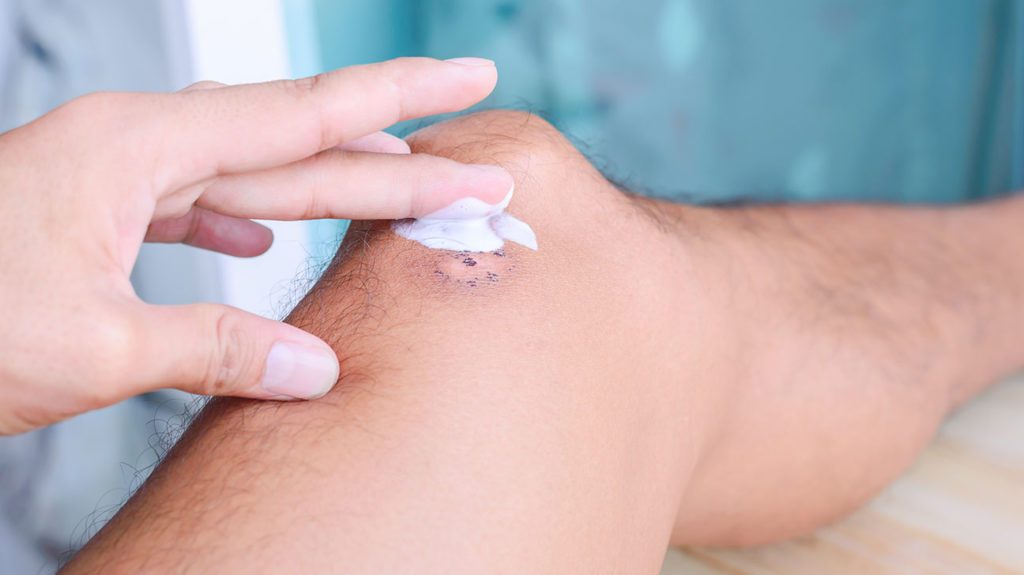
At some point in our lives, we have all had a wound.
Unfortunately, these wounds can create scars that are difficult to remove.
Scars are a natural part of the body's healing process. Whether they are caused by injury, acne, or surgery, scars can be unwanted reminders of past trauma.
Scars come in different shapes and sizes. Most scars are pale and flat, while others are raised due to the increased collagen production in the skin. These scars are more common in younger and dark-skinned people.
Most surgical and acne scars have a sunken appearance due to the loss of underlying structures that support the skin. Also, scars can appear as stretch marks during pregnancy, weight gain, or sickness; because the skin is being stretched rapidly.
Although some scars may seem more stubborn to remove than others, most scars do fade over time. If you have had a scar that has not yet faded, the chances are that you may have already lost hope on it ever fading.
Luckily, minimizing the appearance of scars can be done from the comfort of your home.
Below, are 5 approaches that you can employ to help fade your scars.
Once the scar has formed, you can help reduce their appearance by applying topical creams, lotions, and gel ointments. These scar treatments contain ingredients designed to heal scar tissue and help restore the skin's natural look.
Some common ingredients found in these products include aloe vera, cocoa butter, vitamin E, silicone, and honey. Choosing the best scar cream will vary based on the type of scar being treated, skin type, and the ingredients listed.
It isn't always possible to tell if a wound will lead to scarring after it has healed. Therefore, the most important way to prevent scars is to treat the wound as it is healing.
It is recommended that wounds are kept clean, moisturized, and away from direct sunlight. Following these steps will help aid with the body's natural healing process and potentially lessen the scar's appearance.
Many people think that exposing their skin to the sun will help camouflage their scars. However, the sun can further damage your skin and worsen the appearance of scars. Too much sun exposure can lead to further discoloration because scars are more susceptible to sun damage than the rest of your skin.
With this being said, it is important to shield your scars from the ultraviolet radiation produced by the sun. Make sure you stay out of the sun for prolonged periods and apply SPF 50+ sunscreen to your skin when spending time outdoors.
There are two ways alcohol can negatively impact the way your body heals. Firstly, using rubbing alcohol to clean wounds to prevent infection can actually cause damage to the tissue. Secondly, drinking excessive alcohol can inhibit the body's immune system and wound healing response.
Since alcohol is a diuretic, this can lead to dehydration, which causes the skin to be dry and brittle. Unfortunately, dry skin is not ideal for wound healing. Avoiding alcohol altogether is the best way to avoid scarring after a wound.
Keep in mind, if you ever are tempted to consume alcohol, make sure you drink moderately to avoid any complications with the healing process and to avoid the formation of abnormal scars.
Unfortunately, most people fail to receive the appropriate amounts of vitamins and minerals from their diet. Supplements are a great way to ensure you are getting all the vitamins and minerals your body needs to accelerate wound healing and minimize scarring.
We highly recommend WoundVite, currently the most comprehensive scar and wound care supplement on the market. It contains 21 powerful science-backed pharma-grade ingredients that work together to assist in chronic wound care healing and promote scar reduction. Some of the key ingredients include, Vitamin A, Vitamin C, Zinc, Organic Turmeric, L-Arginine, L-Glutamine, Probiotics, Arnica and Bromelain. Minimizing the appearance of scars can be difficult if your body fails to receive proper vitamins and minerals.
Minimizing the appearance of scars is no easy task. As mentioned earlier, the body needs to consume the correct vitamins and nutrients to achieve these results. Even after following these five tips, it may take several weeks up to months to see significant improvements in your scars' appearance.
Unfortunately, some factors prevent proper skin healing that is way beyond your control. These factors include age, race, genetics, and wound size. However, because your skin is the largest organ in your body, it is important to take proper care of it as you would do with the rest of your organs.